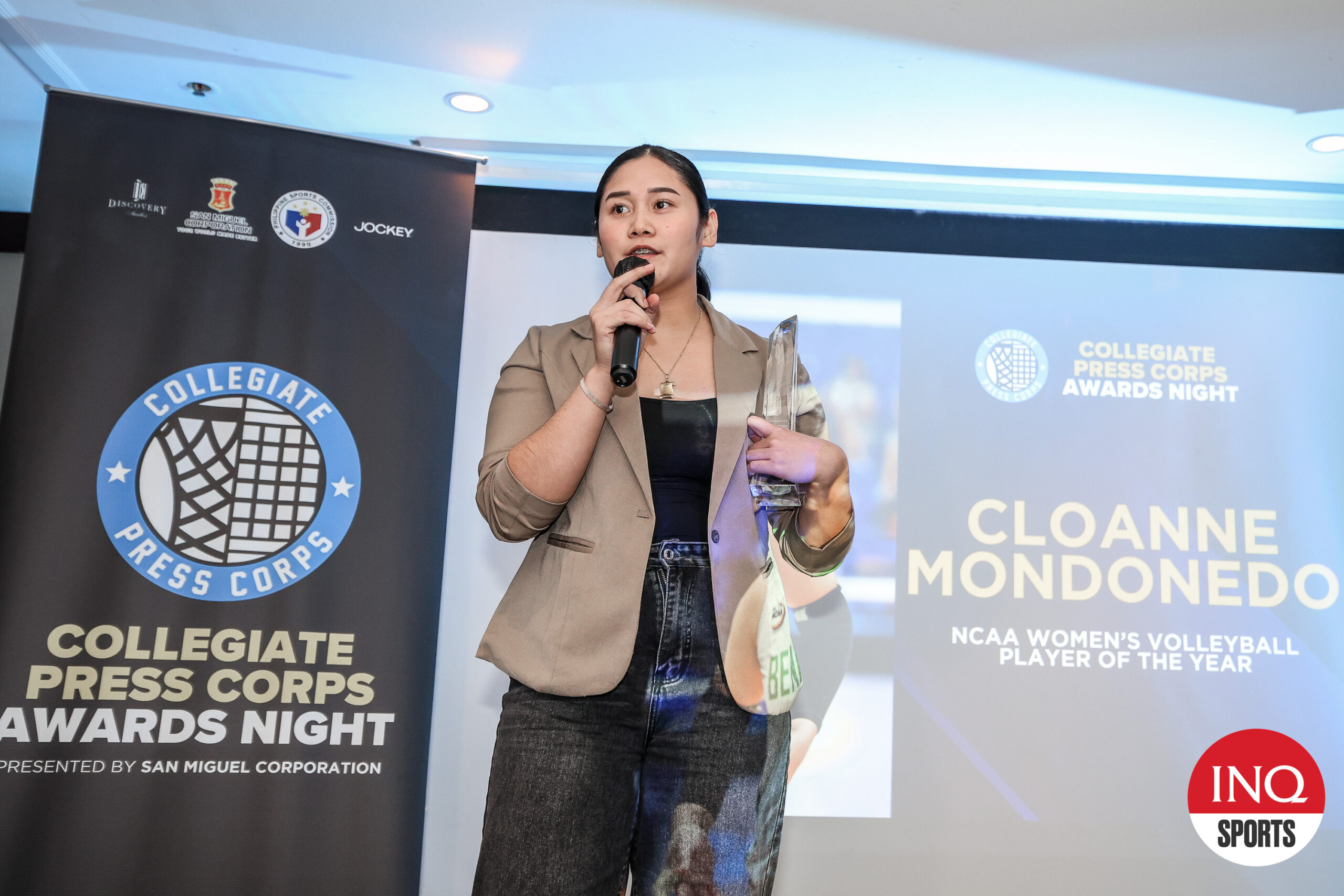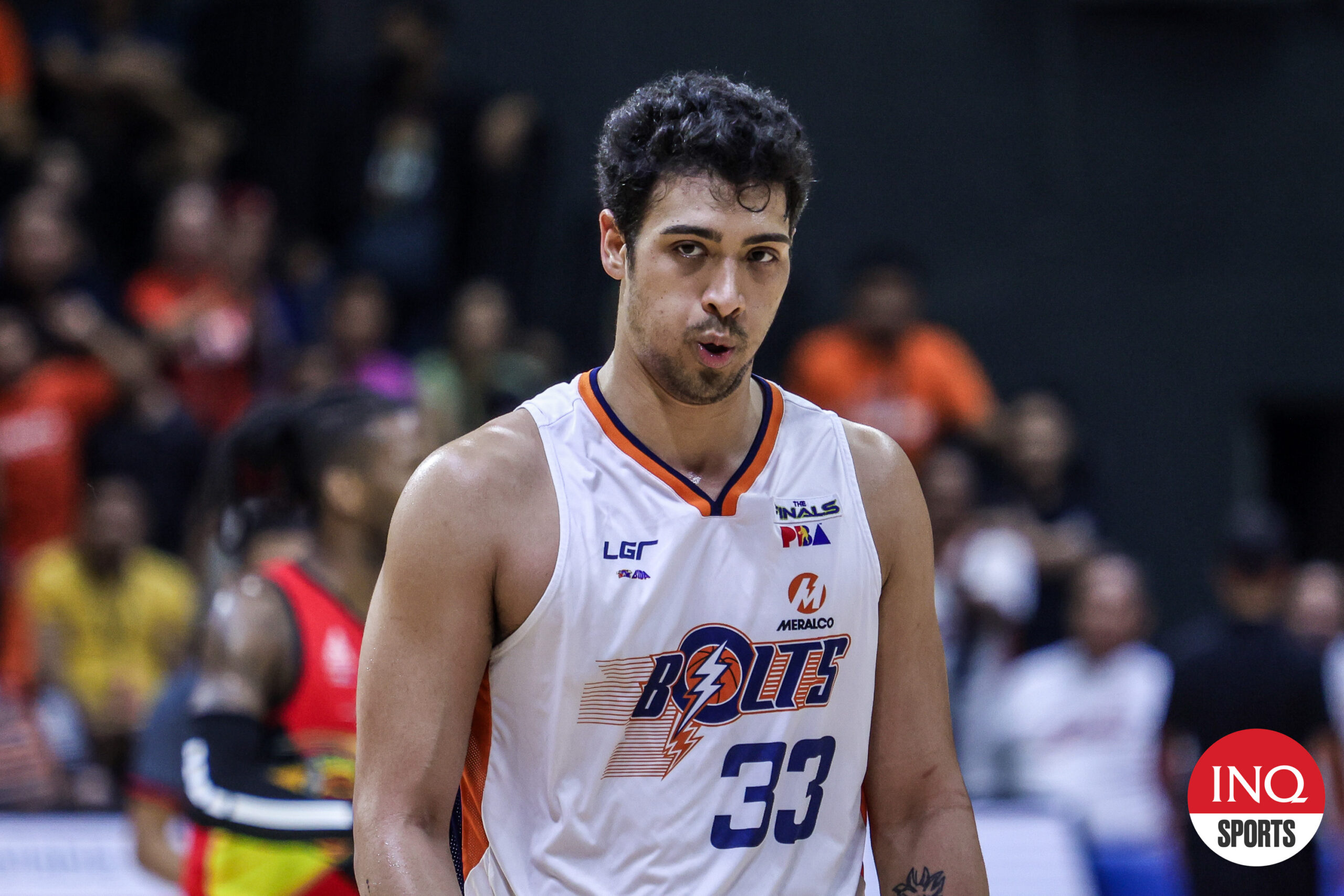St. Benilde Blazers star Cloanne Mondoñedo during Collegiate Press Coprs Awards. –MARLO CUETO/INQUIRER.net
Everybody in the NCAA knew that Cloanne Mondoñedo deserved to win the women’s volleyball MVP award.
Except, maybe, St. Benilde’s ace playmaker herself.
“I had to convince myself that maybe this one’s really for me because I really worked hard ever since I joined NCAA,” Mondoñedo said on late Monday evening after being hailed by the Collegiate Press Corps as the finest women’s volleyball athlete of the country’s oldest varsity competition.
Aside from the fact that Mondoñedo believes so many talented players also deserve to be named MVP, there is that one little fact that contributed heavily to her disbelief: Setters rarely win the highest individual award, and Mondoñedo knew her victory was a statistical rarity.
“To be honest, I was surprised. I didn’t expect it,” she said. “Because all I [was expecting] is the [best] setter award as a bonus to winning the championship.”
“I really thought about it. At first, I said, “how?” I asked a lot of questions.” she said, laughing. “Why me? Why me? How did that happen? And then, I was surprised when I accepted the award from NCAA. They told me that it’s very rare to get the MVP and setter.”
In the collegiate ranks, individual awards are purely stats-based, with no votes getting in the way of the process.
And for setters, that’s an obstacle.
Traditionally, the statistical points that count toward the MVP race include points, attacks, blocks, serves, digs, sets and receptions.
Spikers and blockers hog a lot of those statistical points, especially on points and attacks. At most, playmakers draw their points from sets, serves and sometimes—because of their general proximity to the net—blocks. Digs may be scattered among team members but often, opposing squads have a specific target with their services, lessening the chances for setters to earn points off receptions.
Long-time beat reporters of the NCAA explained that it took a confluence of events to open up a path for Mondoñedo toward the MVP award.
First, a majority of the statistical points, especially the bonuses for won games, were sucked in by St. Benilde. And the Lady Blazers’ production was well spread out across its talented roster.
Then, there was the fact that there was no dominant performer in the NCAA the way the UAAP had. No Bella Belen, Angge Poyos, Angel Canino or Casiey Dongallo coming up with monster 20-plus points a game the way former San Sebastian star Grethcel Soltones did before.
Crucially, perhaps, the MVP candidates of the NCAA were culled from the four teams that survived the elimination round.
Unless those factors combine in a season again, setters—who get the team offense going and open up opportunities for their spikers and blockers to score—may not be in the mix of MVP contenders.
It was quite telling during the CPC Awards Night that Mondoñedo’s feat was described as something that “hasn’t happened in recent memory”—which is shorthand for “we can’t recall if this has happened at all.” In the UAAP, at least since the 1996-97 season, no setter has won the MVP award.
Perhaps it is time to adjust the process for selecting the best individual athlete in a tournament? INQ

